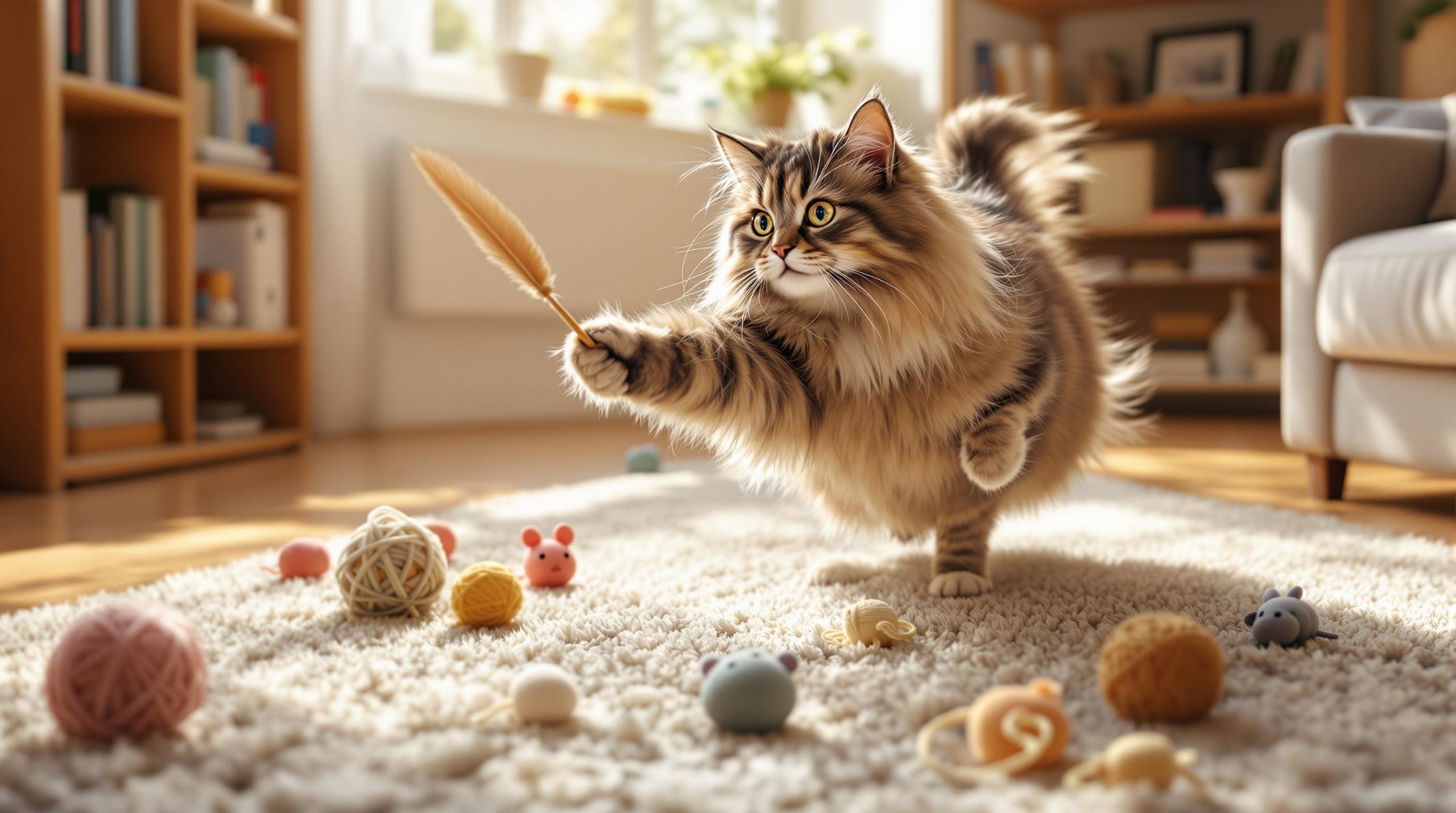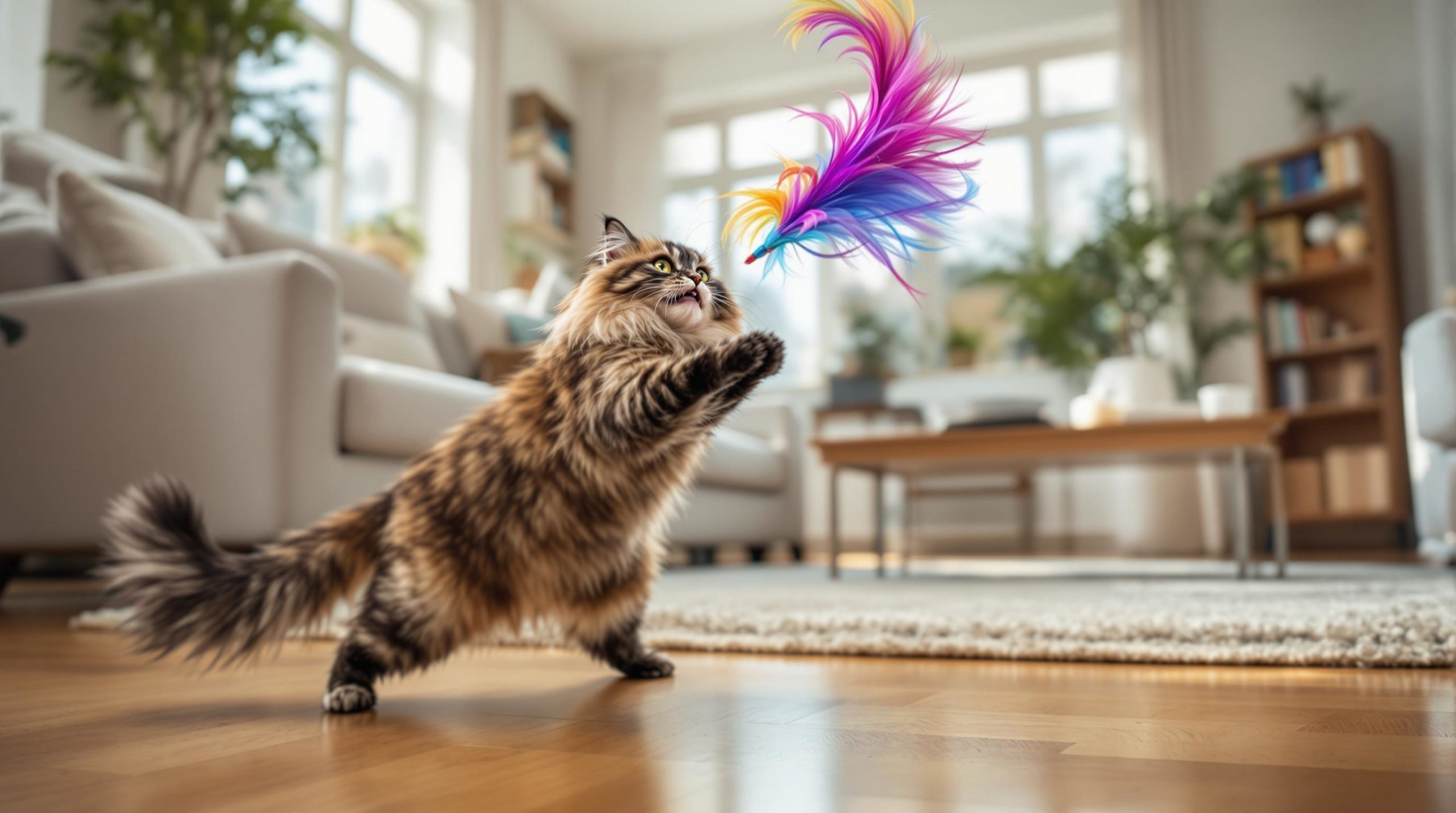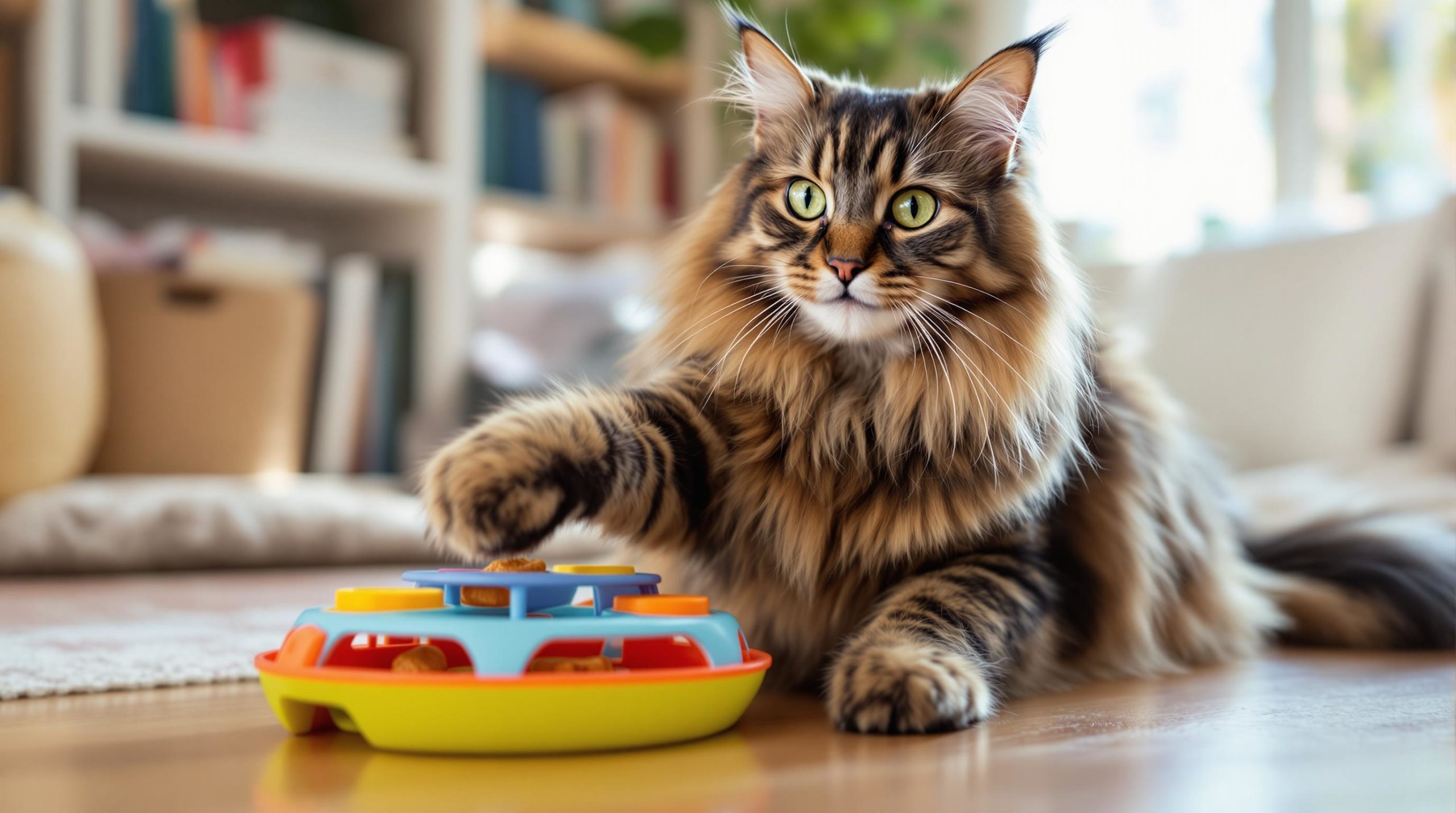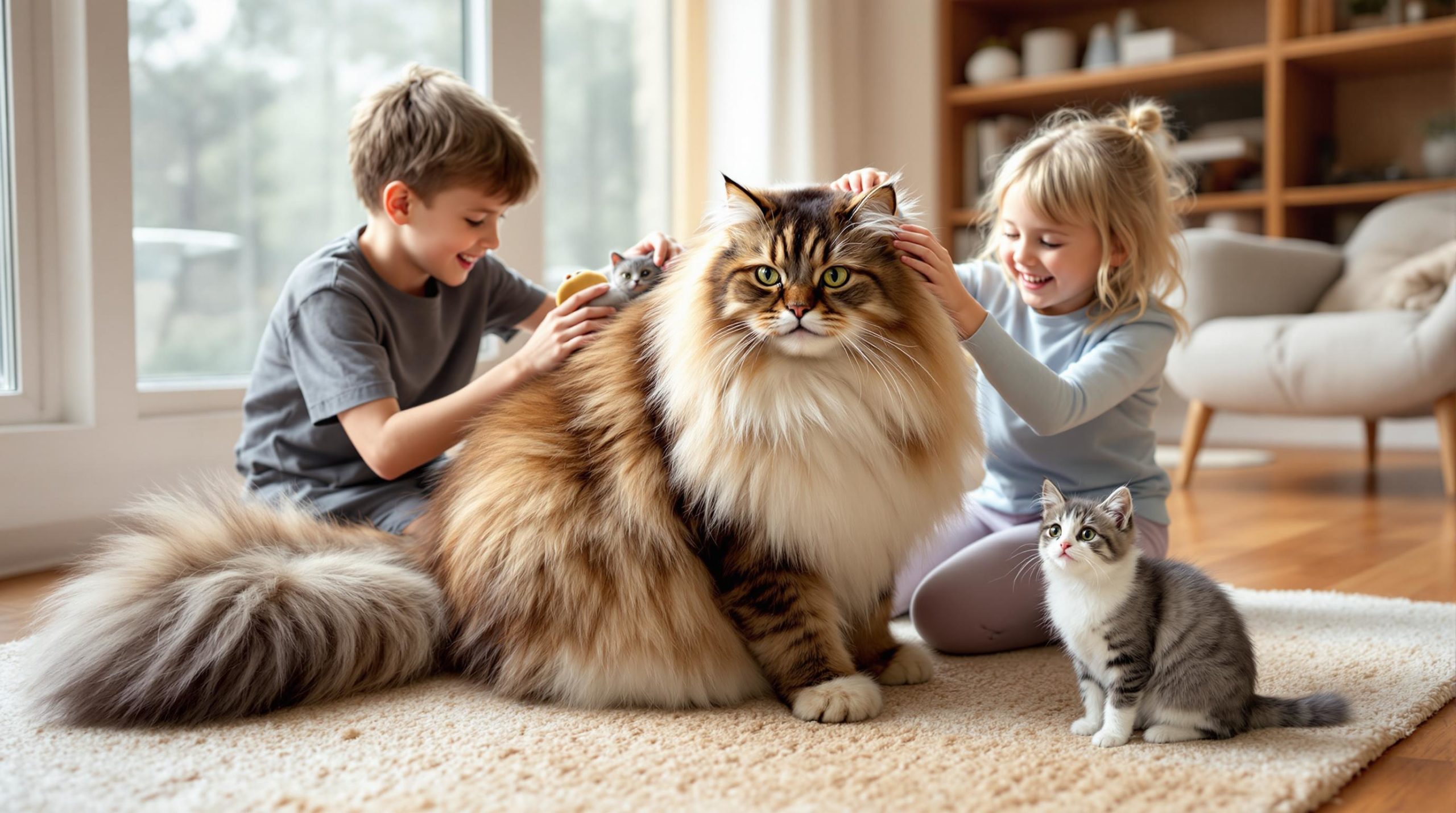Understanding the playful nature of Maine Coons: An exploration of their play behavior

The Maine Coon, often dubbed the gentle giant of the domestic cat world, captures hearts not only with its majestic appearance but with a delightful playful character that extends well into adulthood. Far from being just a beautiful feline, this breed combines intelligence, sociability, and a unique love for interaction that keeps families entertained and engaged. Recognized as the Official State Cat of Maine, these big, fluffy cats continue to win over cat enthusiasts globally with their dog-like loyalty and spirited play. This exploration delves into the intrinsic play behaviors of Maine Coons, revealing how their history, physical features, and personality traits harmonize to create these affectionate yet energetic companions.
Decoding the unique playful behaviors of Maine Coons: How their breed history shapes fun interactions
Maine Coons are not just any cat breed; their playful nature is deeply rooted in their rugged ancestry and survival adaptation. Originating from the cold, harsh landscapes of Maine, North America, these cats evolved traits that not only helped them survive but also made them exceptional hunters and energetic companions. Their playfulness reflects behaviors essential for their ancestors’ survival, including stalking, pouncing, and problem-solving.
Their long, luxurious triple-layered coat is more than a winter shield; it aids in their agility during play, providing warmth without sacrificing mobility. This physical prowess allows Maine Coons to engage in extended play sessions—whether chasing toys, leaping onto high perches, or inventing games with their owners. When engaging with toys like interactive offerings from brands like Neko Flies or Catit, these cats showcase remarkable dexterity and stamina.
Historically, Maine Coons were prized working cats on farms and ships. Their playful hunting skills naturally translate into play behavior seen today. They often initiate interactive games that mimic hunting, such as stalking and capturing moving toys, which provide mental stimulation and physical exercise. Their affinity for water play is another distinguishing characteristic seldom found in other cat breeds—a trait likely stemming from their maritime past.
- Stalking and pouncing: Reflects their hunting instincts
- Water fascination: Uncommon trait leading to playful paw dipping and splashing
- High jump and climb: Utilization of their muscular build in play
- Toy manipulation: Skilled pawing and grabbing with large, furry paws
- Vocal playfulness: Communication through chirps and trills during interactions
Understanding these behaviors illuminates why Maine Coons require enriched environments. Products like PetFusion and PawHut offer innovative climbing structures and interactive elements that cater perfectly to these playful inclinations. Moreover, instilling routine play sessions daily supports their natural curiosity and fosters a healthy outlet for their vigorous energy.

| Play Behavior | Description | Link to Ancestral Traits |
|---|---|---|
| Interactive Stalking | Mimics hunting, involving pouncing and chasing toys. | Farm and ship cat hunting roles |
| Water Play | Dipping paws or playing with water sources. | Harsh maritime climate adaptation |
| High Climbs | Jumping on vertical structures and exploring high places. | Survival skills in rugged terrain |
| Vocalizations during play | Chirps and trills communicating excitement. | Social bonding and alert signals |
Physical and cognitive factors influencing the playfulness of Maine Coons
The remarkable physical attributes of Maine Coons play a critical role in shaping their playful nature. Notably, their muscular, robust bodies and large, furry paws enable complex and strength-demanding play styles. The triple-layered semi-water-resistant coat protects them during rough play and outdoor exploration. These physical characteristics afford Maine Coons the ability to perform impressive leaps and agile maneuvers, engaging in energetic games that other breeds might avoid due to physical limitations.
Cognitive development further reinforces their playful demeanor. Maine Coons exhibit notable intelligence in problem-solving and learning new tricks, such as fetching or walking on a leash, which engage their mental faculties alongside physical activity. Brands like KONG and ChuckIt! create toys that challenge Maine Coons’ mental agility, encouraging them to unlock treats or navigate puzzles, decreasing boredom and destructive tendencies.
- Muscular build: Facilitates vigorous play and climbing
- Large paws with ‘snow boots’: Convey stability for pouncing and manipulating objects
- Intelligent problem solving: Quick adaptation to new toys and games
- Eye-catching coloration: Their expressive eyes help them communicate intent during play
- Vocal learning: Ability to pick up on cues and respond interactively with humans
This dynamic blend of physical and mental traits requires a balanced approach to playtime. Owners are encouraged to invest in a diverse range of toys from retailers like Chewy or PetSmart to stimulate both body and brain. For example, puzzle feeders not only satisfy hunger but also ignite the natural instinct to hunt and forage, while catnip-loaded toys can unleash bursts of exuberance.

| Physical/Cognitive Trait | Contribution to Play | Recommended Toy Types |
|---|---|---|
| Robust Build and Strong Legs | Enables jumping and tackling vigorous games | Climbing trees, interactive chase toys |
| Large, Furry Paws | Grasping, paw interaction with objects | Mouse toys, feather wands from Neko Flies |
| High Intelligence | Quick learning & puzzle solving | Puzzle feeders, treat-dispensing toys |
| Expressive Eyes | Communication and interaction cues | Interactive laser pointers, tracking toys |
How social tendencies influence Maine Coon playful interactions with families and other pets
Maine Coons are famed for their sociable and amiable disposition, which significantly colors their play behavior. Their dog-like loyalty translates into an eagerness to engage with human family members and other pets in playful activities. Whether it’s following their owners around, playing fetch, or initiating social games, their desire for connection sustains a lively household atmosphere.
This affectionate nature makes them ideal participants in family playtimes, tolerating children’s unpredictable behavior with patience. Their gentle temperament means they rarely become overstimulated or aggressive, even during boisterous play, providing safe and joyful companionship. Social enrichment toys from companies like Meow Box often cater specifically to breeds like the Maine Coon, encouraging interactive play that strengthens bonds with humans.
- Playful fetch games: Maine Coons delight in bringing back toys thrown by owners
- Social grooming and mutual play: Interaction with other pets stimulates playfulness
- Adaptability to children: Patience and gentle nature make play safe and comfortable
- Vocal engagement: Using trills and chirps to invite interaction
- Following behavior: Keeping close to human family members as play partners
Thanks to their easygoing nature, Maine Coons integrate effortlessly into multi-pet households. These social skills can be nurtured by providing communal play spaces and diverse toys favored by multiple animals from outlets like PetSmart, keeping all companions happily engaged without jealousy or territorial disputes. They respond well to positive socialization from early kittenhood, shaping lifelong cooperative play habits.

| Social Play Aspect | Behavioral Traits | Impact on Household |
|---|---|---|
| Interactive Play with Family | Fetching, following, responding to vocal cues | Strengthens human-animal bond |
| Compatibility with Other Pets | Shares toys and play space, gentle interactions | Creates harmonious multi-pet environment |
| Tolerance of Children | Patient, gentle, and adaptable to loud play | Ensures safe and enjoyable play for kids |
Training techniques and enriching play for spirited Maine Coons
Given their high intelligence and eagerness to engage, Maine Coons respond exceptionally well to structured play and training sessions. Positive reinforcement methods, including treats and praise, motivate them effectively. Interactive play with toys from popular brands such as Friskies and KONG capitalize on their natural curiosity, encouraging learning through fun.
Leash training is an advanced approach that many Maine Coon owners adopt to expand the cat’s environment safely. This technique boosts mental stimulation while fulfilling their inherent exploratory desires. Tricks like “sit,” “high five,” or “come” are within their capability and further strengthen the owner-pet bond.
- Positive reinforcement: Use of treats to reward desired behaviors
- Leash training: Safe outdoor exploration to reduce boredom
- Interactive puzzle toys: Enhances cognitive engagement
- Routine play sessions: Structured times prevent behavioral issues
- Fetch and retrieve training: Exploits their dog-like tendencies and energy
Incorporating regular grooming during play can reduce resistance, as Maine Coons generally dislike frequent brushing despite their long coats. Simultaneously, it encourages a routine that blends care and companionship, enriching the overall experience. For detailed care advice on maintaining a healthy and happy Maine Coon, visit this in-depth guide on care.
| Training Strategy | Purpose | Recommended Tools or Toys |
|---|---|---|
| Positive Reinforcement | Encourages learning and obedience | Healthy treats, praise |
| Leash Training | Expands environment and mental stimulation | Harness, safe outdoor space |
| Puzzle Play | Cognitive engagement and entertainment | Interactive feeders, treat-dispensing toys (KONG) |
| Fetch Games | Physical exercise and mental challenge | Lightweight balls, feathers (Neko Flies) |
Health and environmental considerations for sustaining playfulness in Maine Coons
The lively playfulness of Maine Coons not only brings joy but serves as an indicator of their overall health and well-being. Adequate nutrition, proper exercise, and grooming are essential to maintaining their energy and coat condition. Diets high in protein and low in carbohydrates contribute to ideal body weight and joint health. Specialized large-breed formulations are increasingly available, making choices at Chewy or PetSmart more diverse than ever. For more detail, explore the latest data on cost and care considerations for Maine Coons in 2025.
Regular veterinary check-ups provide early detection of breed-specific issues such as hypertrophic cardiomyopathy and hip dysplasia. Maintaining a routine of exercise through playful activities alleviates obesity risks and promotes joint flexibility. Because Maine Coons tend to have hearty appetites, managing food portions during feeding and play is vital. Incorporating scheduled playtime with puzzle feeders or toys from Friskies facilitates both physical and mental health.
- Balanced nutrition: Large-breed cat food with sufficient protein
- Routine veterinary care: Early detection of health concerns
- Regular grooming: Prevents matting in the triple-layer coat
- Consistent play and exercise: Supports healthy weight and mental sharpness
- Environmental enrichment: Provides stimulation via varied toys and climbing areas
Equipped with these health-conscious habits, Maine Coons remain vibrant and playful well into their senior years. For comprehensive guidance on health problems typical of this breed, consult expert resources to stay ahead of potential issues.
| Care Aspect | Recommended Practices | Benefits for Playfulness |
|---|---|---|
| Nutrition | Protein-rich diet, large-breed formulations | Maintains energy and supports muscle strength |
| Exercise | Daily interactive play, climbing opportunities | Keeps joints flexible and cognitive functions sharp |
| Grooming | Regular brushing and nail trimming | Prevents discomfort and encourages play readiness |
| Veterinary Care | Annual health checks and preventive care | Early problem detection aids prolonged health |
Frequently Asked Questions about Maine Coons and their playfulness
- Q: How long does the playful nature of Maine Coons usually last?
A: Maine Coons often retain their playful demeanor well into adulthood, with some continuing to exhibit kitten-like playfulness for life. - Q: What types of toys are best for Maine Coons to stimulate their play instinct?
A: Interactive toys like puzzle feeders, feather wands, and treat dispensers work best to engage their intelligence and hunting instincts. - Q: Can Maine Coons be trained to play fetch like dogs?
A: Yes, with patience and positive reinforcement, many Maine Coons learn to fetch and retrieve toys, enhancing their playful interactions. - Q: Are Maine Coons good at playing with other pets?
A: Their social and patient nature usually makes them excellent companions for other pets, including dogs and other cats. - Q: How important is environmental enrichment for maintaining a Maine Coon’s playful behavior?
A: It is crucial; varied toys, climbing spaces, and interactive games keep their minds and bodies stimulated, preventing boredom and undesirable behaviors.